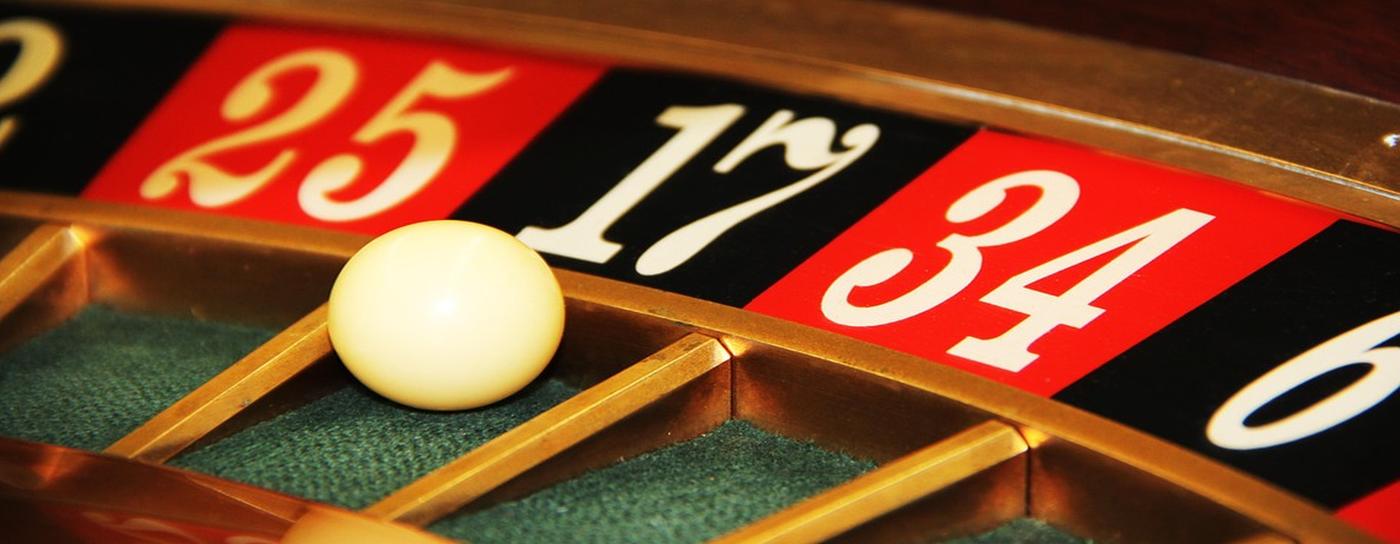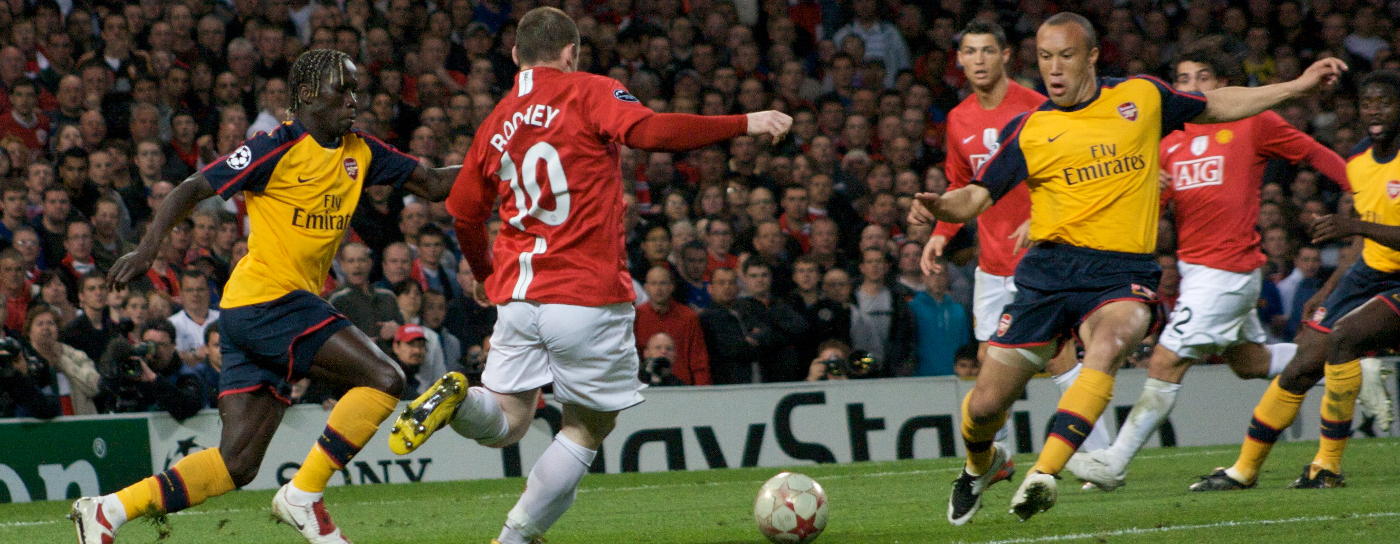For ease of use this ‘Table of Contents’ is hyperlinked to each section of the self-help guide.
Table of Contents
Statement/warning
Nobody associated with ‘Justice for Punters’ is legally trained or qualified. Users of this website and specifically this section need to be aware of this. The content of this self-help guide is purely based on our experience, so we do not guarantee that anyone will win their case by following what is outlined here, but we can say that we have had a reasonable number of successful outcomes for the customer following the processes described.
Introduction
On October 31st 2018 the UK Gambling Commission (GC) introduced new rules for disputes with gambling companies (https://assets.ctfassets.net/j16ev64qyf6l/64ewAJMWNBQpnixog30sI2/e0fee0ace83e4dabe9c20bc1ca41b265/ADR-in-the-gambling-industry-guidance.pdf). There has been some minor tweaks since (https://www.gamblingcommission.gov.uk/consultation-response/changes-to-lccp-on-adr-ci-and-ret-contributions/adr-ci-ret-response-summary-of-consultation-responses-alternative-dispute). J4P has been hoping, but we’re not fantasists, that these improved rules will enable J4P to offer an automated advisory service in the future.
At J4P we strongly support the primary aims of the Gambling Act (2005), in this case the one that states gambling should be ‘fair and open’. This self help guide contributes towards that aim by outlining different ways a consumer can obtain their rights in a dispute with a bookmaker or gambling company, whichever term you choose to use.
This guide is informed by case studies dealt with by a small group of volunteers who have helped customers obtain their consumer rights in disputes where the recommended alternative dispute resolution process has often let them down. It has been updated to reflect all the aforementioned new rules that were introduced on 31-10-2018: (https://assets.ctfassets.net/j16ev64qyf6l/64ewAJMWNBQpnixog30sI2/e0fee0ace83e4dabe9c20bc1ca41b265/ADR-in-the-gambling-industry-guidance.pdf).
The processes this section recommends are primarily based on the Consumer Act (2015) (http://www.legislation.gov.uk/ukpga/2015/15/contents/enacted).
This guide is aimed at any type of sports betting or casino service, however our experience would suggest that the biggest problem is online betting and casino gaming, followed by telephone betting and lastly in a betting shop. As with most things in life, disputes usually get settled more easily when there is personal face-to-face contact, so this possibly explains J4P’s perception of where most problems occur?
These new rules do not mean gambling companies will play fair. History tells us that fairness is not high on the agenda of many gambling companies, so customers will still need to make sure they fight hard and take no notice when company staff say they don’t have rights.
Gambling using other identities
It’s common knowledge that people gamble online using false identities. As an example people may use the identities of other family members and friends: some professional gamblers and people who ‘bonus bag’ may pay to use others’ identities.
The uncomfortable truth for many, if not all, gambling companies in the UK is that they do not trade with anyone who they deem as a potential winner and those who they deem to be taking advantage of the offers they themselves make available. Gambling in the UK regulated industry is only fully available to those who lose and those who are thought will lose in the medium to long term. The regulator and government know all about this, but do nothing despite one major objective of the 2005 Gambling Act and a condition of being issued with a gambling licence that operators trade in a ‘fair and open’ market.
This in-action means the use of false identities is endemic in the UK regulated gambling industry. You only need to search the internet to see how many services discuss ‘bonus bagging’. It’s impossible to obtain accurate figures, but it is not unknown for professional punters to admit they’ve had well over 100 accounts with one gambling company.
If you decide to use this self help guide and you are in dispute whilst using an account that isn’t in your name clearly you are taking a risk this guide doesn’t cover. As an example are you really going to go to court and have a person you paid money to to use their identity ‘take the stand’ to be cross examined?
It is not for J4P to take any legal or even moral stance on gambling using false identities, except to say the problem is caused by non-transparent advertising, unfair trading and a tacit acceptance of the same by the regulator and government.
Take up the dispute with the company
Hopefully, this will lead to an amicable solution.
If it doesn’t, it is vitally important that to keep written evidence of any discussions, so make sure copies of letters, emails and ‘live chat’ conversations are kept. If it involves telephone betting, the bookmaker will likely have recorded all conversations, but sometimes these recordings do seem to disappear, so it might be a good idea to explore ways of recording the conversations personally.
Don’t be worried about the law concerning recording telephone calls in the UK, see: https://en.wikipedia.org/wiki/Telephone_recording_laws#United_Kingdom
The following url explains cheap and easy ways to record your telephone calls, but don’t forget to shop around: http://www.pcadvisor.co.uk/how-to/audio/how-record-phone-calls-3508046/
J4P’s experience suggests that customer service staff do not always tell the whole truth, do not always address the issue and will certainly quote unfair terms and conditions in an attempt to stop a consumer obtaining their rights. If this was any other industry there would certainly have been large fines imposed already by a regulator or ombudsman for poor customer service, but not so in this industry.
If discussions with customer service staff fail it is time to send an email or letter to the Chief Executive Officer of the company you are in dispute with. The following website often helps with email addresses: http://www.ceoemail.com. A Google search will find a postal address.
Under the new 10/2018 gambling dispute rules a company has a maximum of 8-weeks to settle a dispute amicably (https://assets.ctfassets.net/j16ev64qyf6l/64ewAJMWNBQpnixog30sI2/e0fee0ace83e4dabe9c20bc1ca41b265/ADR-in-the-gambling-industry-guidance.pdf). If this is not achieved then the company must hand the dispute over to an alternative dispute organisation. The customer could use ‘Resolver’ earlier (see section 5 [next]).
‘Resolver’
This option was added by the GC in August 2017 as a result of a review they completed, which concluded that present gambling dispute systems were not working for the customer.
‘Justice for Punters’ recommends use of this option quickly if a bookmaker or casino is messing a customer about, e.g. not responding to emails, never answering questions on ‘live chat’, etc. These problems are very common. However, it must be noted that ‘Resolver’ has no legal standing and little power, if any, so expectations must be realistic.
If you go to: https://www.resolver.co.uk/ and then type in the name of the company you have a dispute with it will tell you if they are signed-up. All gambling companies licensed by the GC have to sign-up. If the company you are in dispute with isn’t, you should report this to the GC using info@gamblingcommission.gov.uk or you can telephone 0121 230 6666.
Basically ‘Resolver’ enables people to progress their dispute in a formal way that is known to have had success in other business areas. You can be pretty sure that bookmakers did not volunteer to use ‘Resolver’, which says it all.
Gambling companies often try to slow down or refuse to use ‘Resolver’, because it generates a new email address for the customer, i.e. not one linked to the gambling account where the dispute is. This is nonsense, the customer should just tell the company to get on with it or report the problem to ‘Resolver’.
If you would prefer to use an alternative dispute organisation listed on a gambling company website without using ‘Resolver’ this is fine; it’s your choice.
Use alternative dispute resolution
If you fail to settle the dispute directly with the bookmaker or casino they must say who their chosen alternative dispute resolution (ADR) organisation is: This will be on their website. The customer can refuse their choice and suggest one of their own, but the bookmaker can also refuse this choice (really helpful that)!
Using an ADR is where most of the new 10/2018 rules will have an impact. According to the GC the ADR system hasn’t been working for consumers, so they have taken action. ADRs will have to improve immensely if they are to meet the new standards, which is great for consumers.
ADR providers, e.g. IBAS; will have to take on more types of dispute, including non-payment of customer balances and do everything in their powers to avoid the need for court action.
ADRs will also have to share all dispute evidence submitted with all parties. It’s quite incredible that this has never applied before, but consumers can now look forward to much better transparency. Further transparency is also expected on ADR websites whereby consumers will know the exact stage their dispute is at through the provision of online case tracking.
The introduction of a potential for customer compensation is another interesting new option. J4P hopes it’s never needed, but?
J4P is also pleased that potential ‘conflicts of interests’ are being addressed and hope to see ‘industry insiders’ of all types being excluded from dispute decision making panels.
Overall, so long as the 2018 standards and guidance are implemented correctly J4P is happy with them for now, except the eight week delay before a customer can submit a complaint to an ADR. J4P genuinely hopes no ADRs will have their licence taken off them, but we also urge the Gambling Commission to do so if service standards do not meet the new expectations.
The vast majority of UK licensed gambling companies use either: IBAS (https://www.ibas-uk.com/consumers/how-to-raise-a-dispute/) and eCogra (https://ecogra.org/forms/adr-dispute-step-1).
Alternative option: Citizens Advice
It’s always worth trying this option, as times change and it’s free.
Disappointingly, J4P’s experience is that they are rarely keen to advise on betting disputes. Certainly, we have received conflicting feedback about what they are willing to do. The customer’s choice and it is only a telephone call in the first instance, so you’ve nothing to lose.
There are different websites you can link to from https://www.citizensadvice.org.uk dependent on the area of the UK where you live. You should select your option and look for the ‘Contact us’ page, e.g. https://www.citizensadvice.org.uk/about-us/contact-us/
Alternative option: Small claims court
It is vital to note that what follows applies to the English and Welsh courts, not to Scotland and Northern Ireland who have different court systems: Scotland (https://www.scotcourts.gov.uk/taking-action/simple-procedure) and Northern Ireland (https://www.justice-ni.gov.uk/articles/small-claims).
This will frighten some people, but the likely cost, so long as you have a good case, tell the truth and are willing to appear in court (incredibly unlikely – see later) could be as little as £25.00 by using the HM Courts & Tribunals Service online: https://www.moneyclaim.gov.uk/web/mcol/welcome. The link to the complete fee structure is: https://www.gov.uk/make-court-claim-for-money/court-fees. Please note that small claims does not mean tiny amounts of money and the fees for claims up to £10,000.00 are very reasonable. The fee is recouped from the bookmaker or casino if the customer wins. It is possible to use the small claims court for amounts of £200,000+, but the fee is substantial (£10,000).
Please note that the full online service can only be used to submit claims up to 10K concerning bet/s placed and money owed in England and Wales, and with companies who have registered offices in England and Wales. For all other bookmakers and this will include most online disputes, because the online arms of nearly every big bookmaker are based abroad for tax efficiency purposes, you will have to complete the downloadable pdf forms (n001 & n510) and print the forms out after completing them. They then need posting, enclosing a relevant payment, to:
County Court Money Claims Centre, PO Box 527, Salford, M5 0BY
The person also needs to post a copy of both forms using recorded delivery to the gambling company at their head office address in Gibraltar, Malta or wherever. Please note that the post to the money claims centre in Salford must also contain form N215 – Certificate of Service.
If you have difficulty completing the form online or any part of the form or forms as pdfs there is a freephone helpline – 0300 123 1372. There are examples of completed forms on our website: https://justiceforpunters.org/small-claims-court/how-to-complete-small-claims-court-forms/
The government also provides an excellent step-by-step guide on using the small claims court and what will happen: https://www.gov.uk/make-court-claim-for-money/overview.
There is no question that this option can be a good option for betting disputes, because there is little, if any chance, that a bookmaker or casino will go to court if they know the dispute involves using unfair T&Cs to stop a customer obtaining their rights. It’s crucial to note that for disputes worth more than 10K a claimant may become liable for the defence’s costs if they lose. Some common examples of this are:
a) Not paying out the correct amount on promotions, e.g. retrospectively stating best odds guaranteed (BOG) has been withdrawn.
b) Not paying out on bets placed 2-3 seconds after the off in shop, if there is evidence that the shop staff do this all the time.
c) Not paying out, because your account has not been verified correctly, when you have sent perfectly clear scans of proof of address and a personal picture of either your driving licence or passport photograph page (unless there is evidence of criminal activity).
d) Confiscating the money in your account, because a bookmaker claims someone else has been using your account without providing conclusive proof someone has. It is very, very unlikely a bookmaker will have this evidence, whatever they claim and if they refuse to provide it, you will have a very good chance of winning a small claim (unless there is evidence of criminal activity).
We could go on forever as some bookmakers use so many unfair T&Cs.
Where next
We are a volunteer service with no income, therefore after six years we’ve decided we can no longer help people individually.
This is why we’ve written this self help guide, which also includes other web pages containing letters/emails you can adapt to help you get through each process of a dispute (see section 12 ‘Questions and Answers’). There is also an older section on our website that may help with email/letter layouts (please note this section was written a few years ago – see: https://justiceforpunters.org/helpful-letteremail-layouts/).
Conclusion
Winning a dispute with a bookmaker or casino can be difficult; some companies make sure of that, but if you feel your rights have been infringed, you should fight. We’ve helped recoup over £2.5 million for people who were told they had no rights to the money they eventually received.
It will take time and patience, and there maybe frequent attempts to make life difficult for you. If you choose the small claims route some companies will often make you go through 95% of the process, i.e. until the week of a court appearance. But, do not worry, our experience is that this is all ‘bluff’ and the company will be highly likely to settle the claim outside court during the final week. If your case is sound it is highly unlikely that a company will want a judge to make a judgement on an unfair T&C or other unfair practice, because this will set a precedent that stops companies trying to put other customers off obtaining the same rights in the future. The following is the latest example where a gambling company made a big mistake: https://www.bailii.org/ew/cases/EWHC/QB/2021/842.html It’s a long read, but basically it is great news for the gambling consumer.
A direct quote:
“Summary of My Conclusions
I have concluded that the Claimant succeeds in his application for summary judgment under a number of heads of argument. In summary:
a. This case involves the resolution of a number of relatively short points of contractual construction and there are sufficient materials before the court for it to decide the issues, and there is no other good reason as to why the court should not do so.
b. The wording of each of the clauses relied upon is inadequate as a matter of the natural meaning of the language in context to exclude liability to payout Mr Green’s winnings in the events which happened.
c. The manner in which the relevant clauses were presented and the failure adequately to draw them to his attention meant that the three purported exclusions, even had they been effective to exclude liability, were not incorporated in the contract between the parties.
d. Even if the words of the clauses relied upon by Betfred were adequate to encompass the fault in the Game and adequately brought to Mr Green’s attention so as to be incorporated in the contracts of gaming, they were not transparent or fair and Betfred were not entitled to rely upon them.
e. The doctrine of mistake is inapplicable to these facts.”
Case studies
Customer A
Placed a single win bet and an ew double on two horses 20 minutes after opening an account. One horse won and the other was placed. Both drifted, so customer A benefitted from a best odds guaranteed (BOG) promotion. The correct amount was initially added to customer A’s account. The following morning customer A received an email from the company saying best odds guaranteed had been removed from the account. The amount of money in the account had been changed to reflect this email. Customer A was now £1100.00 worse off.
Customer A came to ‘Justice for Punters’ as the company was refusing to change their decision. What they had done was illegal under consumer law. J4P advised customer A to use the small claims court.
Customer A sent a ‘letter before action’ to the company (no response). Then a small claim was submitted at a cost of £80.00. As soon as the company received the claim from the court the company paid out in full as they knew they would lose in a court of law due to their use of unfair terms and conditions.
Customer B
Had won £5,500 but the company was refusing to process a cash withdrawal as they claimed customer B had previously self-excluded from an account with another company in their corporate group (unbeknown to customer B). This issue had never arisen when customer B was gambling, but the company were now only offering customer B’s deposit back (£200.00), as under their terms and conditions customer B should not have been allowed to gamble. Despite the problem being caused by the company, i.e. their social responsibility procedures had failed they were still refusing to pay out.
Customer B would likely have won the case using the small claims court, but B decided to contact a major media outlet. The company was contacted by the media outlet and told that a story would be published about the case. The company paid out in full 48 hours later, 18 hours before the story was due to run.
Customer C
Had an account closed by a major bookmaker. Of course, no reason was given. Customer C provided ‘Justice for Punters’ with details of correspondence relating to the company refusing to reopen the account and the bet history from the account. The bets were all between £2-£6 and C was losing money on the account.
‘Justice for Punters’ provided a letter, which was sent to the Chief Executive Officer of the company. The account was reopened, an apology sent with an offer of free bets for the time and troubles caused.
These are three very different cases, two involve money, but just as importantly one involves a software mistake that the company were refusing to look into. C was a grandma, who was treated like a ‘criminal’, but she does have rights and certainly she should have been treated with respect by customer services. Thankfully, eventually she was, but the damage was done.
Customer D (much more comprehensive detail showing correspondence)
This is a case about delaying paying out: https://justiceforpunters.org/other-punter-injustices/we-take-bets-on-lotteries-but-dont-like-paying-out/
Customer E (much more comprehensive detail showing correspondence)
This is a case about how T&Cs can used against a customer, especially when somebody decideds to ‘dig their heels in’: https://justiceforpunters.org/other-punter-injustices/why-should-we-honour-a-bet-our-grandad-did-that/
Customer F (much more comprehensive detail showing correspondence)
This is a case about poor performance in alternative dispute resolution and checking T&Cs before placing bets: https://justiceforpunters.org/complaining/when-a-bet-has-won-but-lets-not-bother-paying-the-customer/
Questions and answers
My bet has been paid incorrectly
A gambling company keeps asking for more and more personal documents off me
A gambling company won’t pay me for a specific or group of bets
A gambling company is withholding my account balance
I want a gambling company to delete all my personal data








